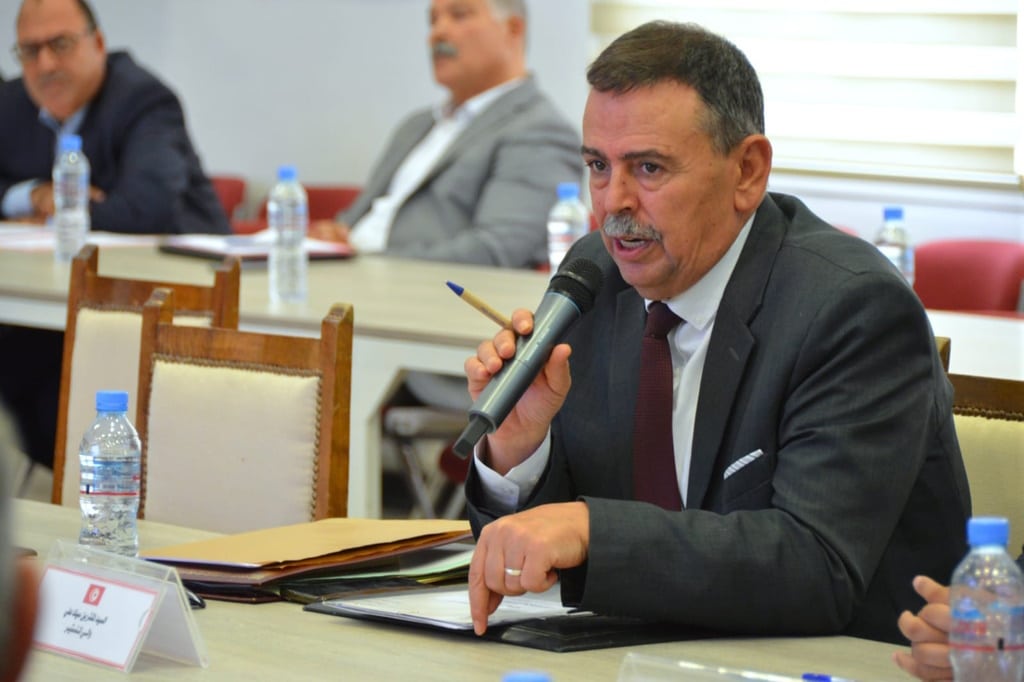No total ban, but some planning. That, in a nutshell, is the Tunisian government’s new strategy for managing water resources in Tunisia, against a backdrop of drought. On 4 November 2023, the Tunisian Ministry of Agriculture, Water Resources and Marine Fisheries adopted a document detailing this strategy, which will “guarantee access to drinking water for the population”.
According to the Minister for Agriculture, Abdel Monem Balaati, this plan, adopted in the presence of the Secretary of State for Water, Reda Qabouj, the governors of Ben Aros, Nouba, Ariana, Benzerrat, Soussa, Fax and Mahdia, and regional representatives for agricultural development from the governorates concerned, will control the supply of and demand for drinking water in the country led by Kaïs Saïed.
After restrictions were imposed on the use of drinking water for crop irrigation from 31 March 2023, the Ministry of Agriculture, Water Resources and Marine Fisheries is back at it again, indicating that the necessary legal measures will be taken against offenders. In the meantime, the connection of wells to drinking water networks will be programmed, with the number of wells, the cost of the work and the desired rations to reduce pressure on surface water being determined.
Campaigns will also be planned in all the governorates of Tunisia, starting on 13 November 2023, to raise awareness of the importance of water as a source of wealth amid the confinement of waterfalls.
The document published last Saturday also calls for a judicial action plan to eliminate arbitrary connections to irrigation water. While the Tunisian authorities have recognised the need to reduce food insecurity, this must not impinge on the continuity of the drinking water supply. A review of the position of water bodies to limit excesses and eliminate related problems in terms of water distribution and bill collection will be carried out.
Read Also – TUNISIA: SONEDE invests €21.6m in water supply in Tataouine
To reduce the pressure on the country’s drinking water supply, the Tunisian government is also banking on the desalination of seawater and the reuse of treated wastewater for irrigation, through the construction of desalination and purification plants respectively. In terms of effluent recovery, Tunisia is currently working on an annual programme to develop the use of treated wastewater. The aim is to involve all stakeholders in the treatment process, in particular the Tunisian Ministry of Higher Education and Scientific Research, to step up monitoring and strengthen self-monitoring mechanisms at all stages of the wastewater exploitation process in Tunisia, and to draw up a communication plan to raise awareness among all stakeholders of the importance of preserving water, while providing operators with guidance and information.
Inès Magoum
